Addition skills Easy Numbers Worksheets for Ages 3-8
5 filtered results
-
From - To
Discover our engaging Addition Skills Easy Numbers Worksheets designed for children ages 3-8! These worksheets offer a fun and interactive way for young learners to develop foundational math skills. Featuring colorful visuals and simple addition problems, these activities help kids gain confidence as they explore basic mathematics. Our resources are crafted to cater to different learning styles, ensuring that every child finds joy in learning how to add. Perfect for school or home practice, these worksheets encourage problem-solving and critical thinking. Equip your child with essential addition skills today and watch their numerical fluency grow!
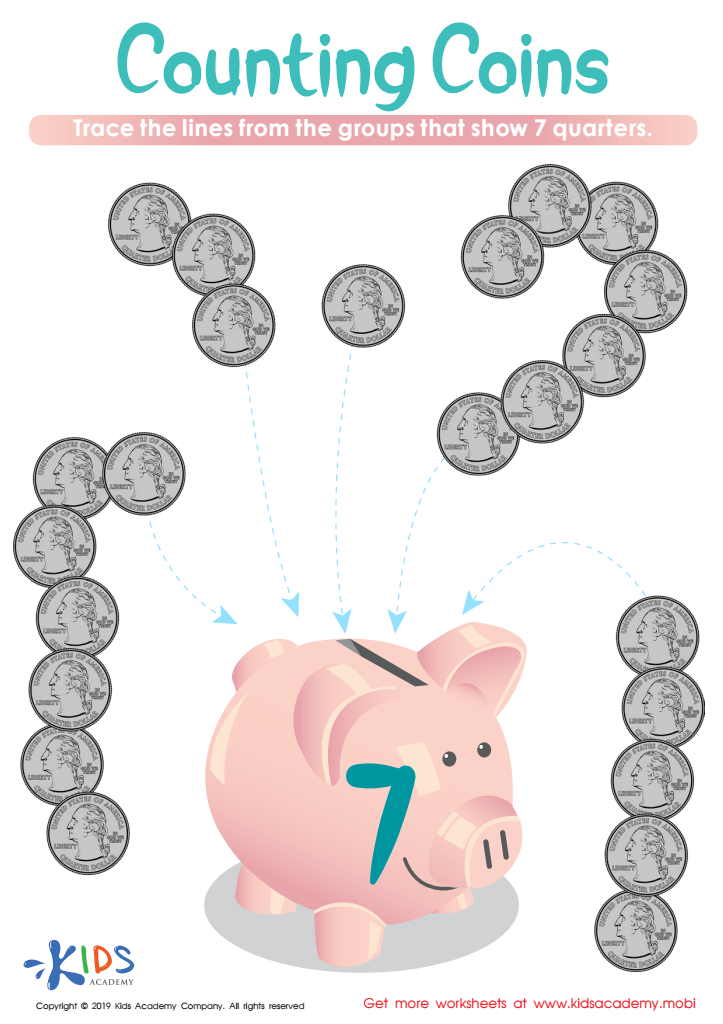

Counting Coins Worksheet
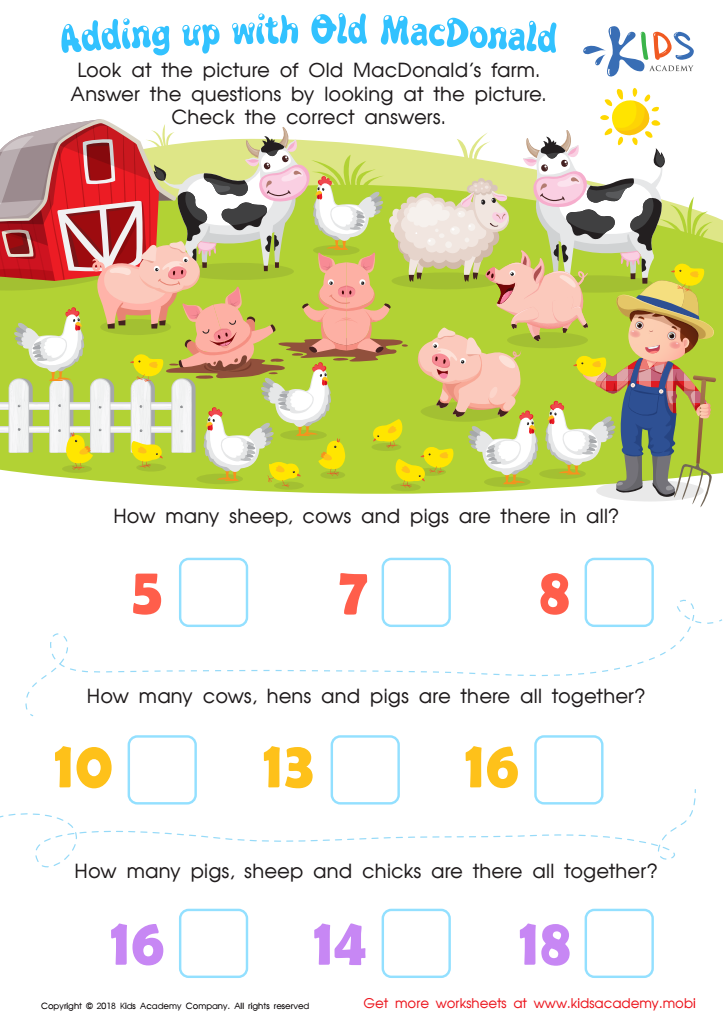

Adding Up with Old MacDonald Worksheet
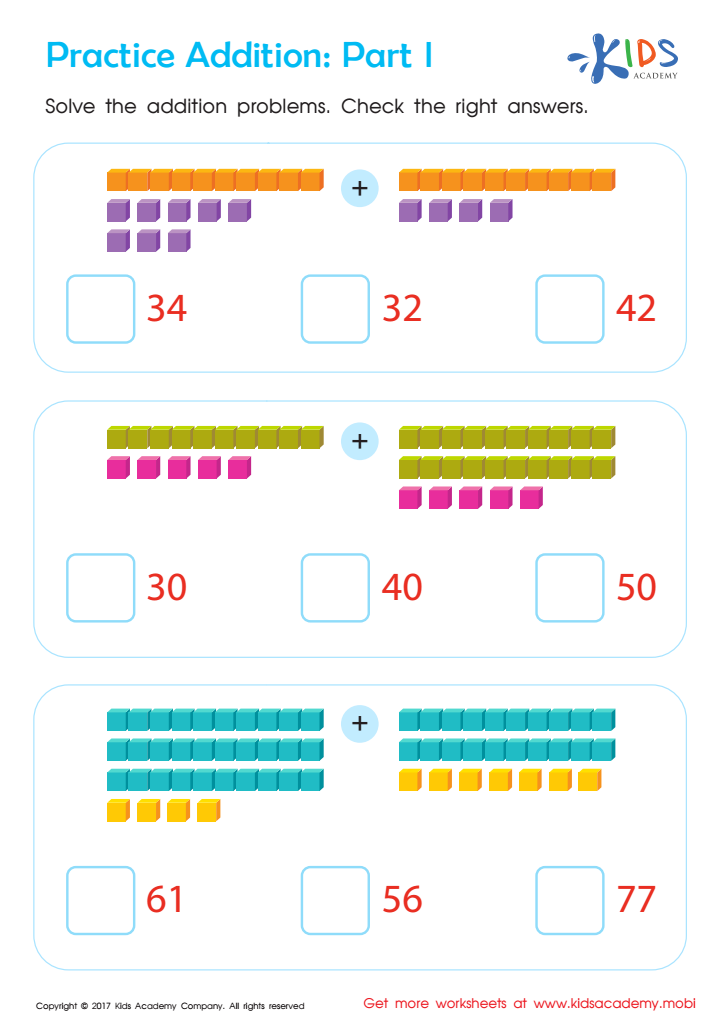

Practice Addition: Part 1 Worksheet
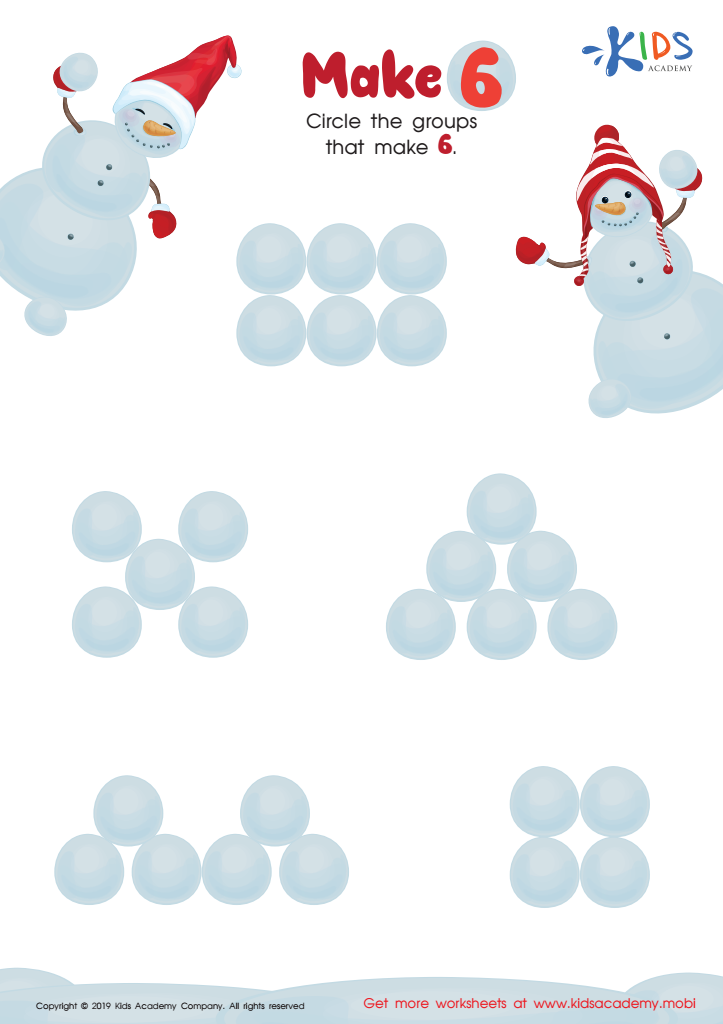

Make 6 Worksheet
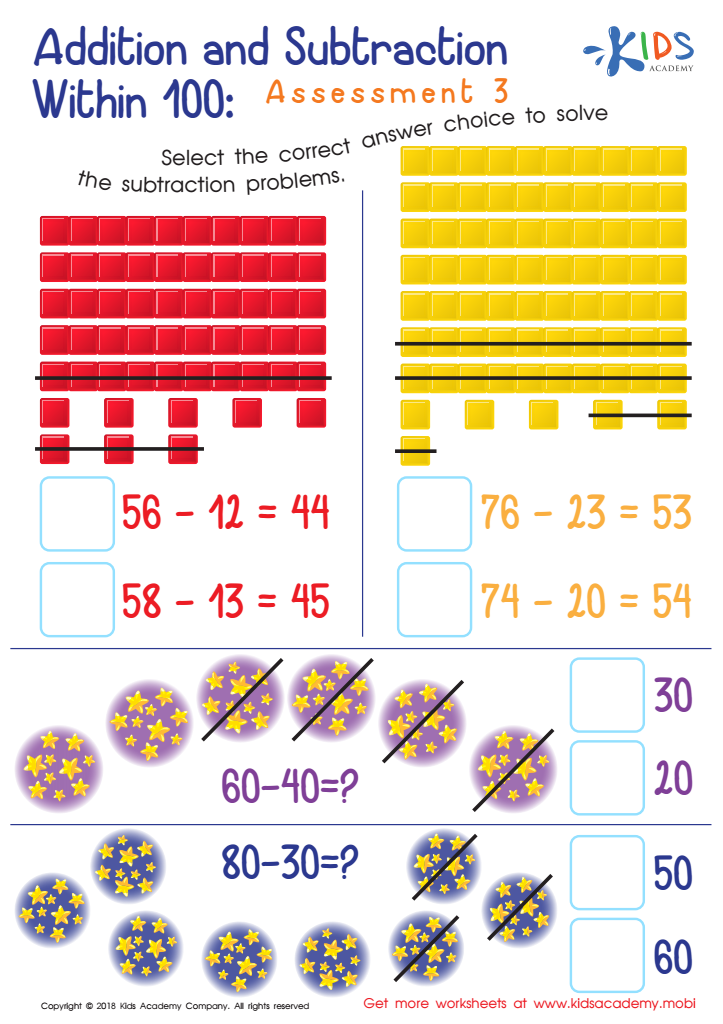

Addition and Subtraction Within 1: Assessment 3 Worksheet
Addition skills are foundational for young learners aged 3-8, forming a crucial part of their mathematical development. Parents and teachers should prioritize these skills as they foster critical thinking, problem-solving, and cognitive growth. Early exposure to addition helps children recognize patterns and relationships between numbers, promoting numeracy in everyday life. Mastery of easy addition builds confidence, enabling children to tackle more complex concepts in later grades.
Additionally, learning addition assists in the development of fine motor skills, as children often engage in activities like counting with fingers or handling physical objects during lessons. This hands-on engagement creates a positive association with math, encouraging a lifelong love for learning.
Furthermore, addition skills promote social interaction, as children often collaborate and solve problems together in group settings or playdates. This encourages teamwork and communication.
In an increasingly data-driven world, encouraging these early math skills prepares children for academic and professional success. Overall, knowing addition empowers young learners both in their education and their daily lives, making it important for parents and teachers to actively support the development of these essential skills.
 Assign to My Students
Assign to My Students
















